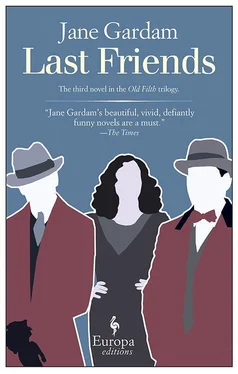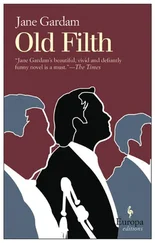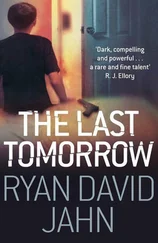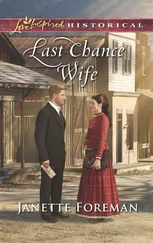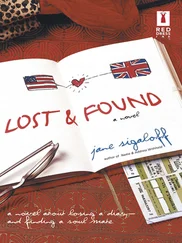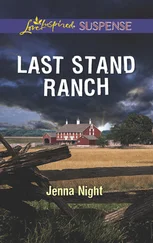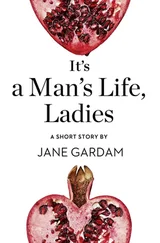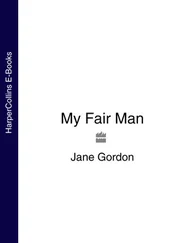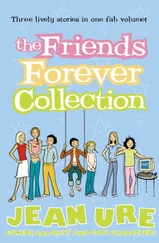Every morning then, for five years, Florrie would heave herself off the railing and back down the road again to No. 9 Muriel Street, so close she could have waved him off at the front door. And from the very start he’d got home again from the station alone. He had crossed over the iron footbridge out of the alley and into some bushes. Everyone, including Florrie, seemed vague about the home train’s time of arrival and as he got older he began to make small differentials to his front door, preferring the back door in the paved grey alley where there were sheds and a cart house and black stains of blood. The blood was ingrained into the dip around the central soak-away where for years the butcher had slaughtered a beast every Thursday morning. The back street stank of salt. Then he ran round home and in at the front.
When he grew to be eight or nine he told them at home that his day at school was longer now and he would be late, then he began to take off regularly down Station Road, past the chip shop and the corn-store to the band-stand on the promenade looking towards the sea. He clambered about on the flaky iron lace-work and the peeling iron pillars that supported its dainty roof. He stayed there maybe half an hour doing somersaults on the railings, or dancing about or just staring at the grey sea. Herringfleet had once had a brass band that played airs from The Merry Widow or Gilbert and Sullivan to people in hats and gloves who sat out on deck chairs on the promenade but Terry knew nothing about that. He didn’t know the meaning of ‘band-stand’. He’d slide away home through the back streets again and come in at the front door as if he’d just got off the train.
Inside the tiny house the scene was unchanging and he scarcely registered it. His father lay on the high bed facing the street door, beside him a commode covered with a clean cloth. An iron kettle hung from a chain over the fire, puffing and clattering its lid and the window over the sink was misted over with steam. Occasionally, on good days, his father might be in a chair, but usually, summer and winter, the long, tense figure lay on its back, coughing and coughing and sometimes swearing in Russian ‘or whatever they speak in Odessa,’ as Nurse Watkins down the street said. She would have left a minute or so before Terry got home from school, and a tray put out on the kitchen table with big, white tea-cups with a gold trefoil on the side and a broad gold rim. There’d be a plate of bread and butter with another plate on top of it. Nurse Watkins came in every day and was paid half-a-crown now and then because the families were in some way connected. She would wash out the Odessan’s long flannels in Lux flakes and put him in clean ones, rub his joints, shake the bit of sheep-skin someone had once brought down from Long Hall on the moors, which still smelled of sheep-dip. It prevented bed-sores.
Nurse Watkins didn’t seem to have had any training anywhere but there was nothing she didn’t know. She was midwife to the town and she laid everyone out at death and told lascivious corpse-stories. She had Gypsy eyes and earrings and had been briefly at school with Florrie but had left at twelve. Over the years she had looked long at the Odessan whilst he had looked only at the ceiling. She stroked back his bright hair on the pillow and shaved him with a cut-throat razor when he would allow it. Florrie did the toe-nails but not well.
‘Train late again then?’ his father said to Terry. ‘Gets later.’ He spoke in Russian.
‘Yes. Late,’ said Terry, in Russian. ‘She’ll be late in, too. Winter coming. Getting dark.’
Terry made tea in the brown pot and let it stand on the hob until it was brewed.
‘Are there no biscuits, Dad,’ and then in English ‘Why’s there never a biscuit, then?’ and his father roared back in Russian about his grammar.
‘Dist wan’ a biscuit then, Dad?’
‘ Do you want ,’ said his father.
‘Or there’s bread.’
Sometimes his father lifted up a hand, which meant yes.
Then Florrie would be back with them, telling Terry in broad Teesside patois where to find biscuits (in her bag to stop Nurse Watkins). She would refill the kettle and swing it back over the fire for the next brew. All three knew how tired she was.
* * *
All that day she had been unrecognisable, black as a Negro, a man’s thick tweed cap pulled over her hair, back to front. A man’s thick coat, made thicker by years of grime, had been tied with rope round her middle. All day she’d been perched up high on a bench across the coal-cart that she kept in the alley alongside the shed of the scrawny little horse and the coal store. The butcher’s men often gave her a hand, if they were there.
Three days a week she clopped round the town on the cart through all the back streets, shouting ‘COAL’ in a resounding voice. The lungs of a diva. ‘Coal today,’ she shouted and from the better houses of the iron-masters’ in Kirkleatham Street the maids ran out in white cap and apron, twittering like starlings. ‘Three bags now Florrie,’ ‘Four bags,’ and watched her heave herself down off the dray, turn her back, claw down one sack after another with black gloves stiff as wood. She balanced them along into coal-houses or holes in stable yards showering out coals and coal-dust. She took the money and dropped it inside a flat leather pouch on the rope belt around her stomach. She adored her work.
‘Cuppa tea, Florrie?’
‘No time, no time.’
A long slow sexy laugh, then back on the dray. Street after street. The horse knew where to stop. Trade was steady. Her call was tuneful, rather like the rag-and-bone man but richer. Almost a song. Fifty years on, Sir Terence Veneering QC, sitting in the Colonial Club, happened to mention to someone in the Sultanate that he had been born in Herringfleet, was told that there had been a northern woman, larger than life, who had delivered coals. Or so it was said. In the poverty-stricken North-East — in the middle of the Thirties.
Once home Florrie drove the dray round to the back. She took the horse to the shed and fed it, rubbed it down and if there was no-one about to help her she dragged the dray into the cart-house. There was a communal bath-house for Muriel Street and she paid a penny to have it to herself on coal days. She poured hot water from the brick tub all over herself with a tin can. She washed her hair and feet and hands and then her body with a block of transparent green Fairy Soap. Then she dried herself on a brown towel, rough as heather.
* * *
Above the crooked, unpainted doors of the cart-house hung a hand-painted, wooden sign in green and gold saying Vanetski Coal Merchant and the exotic flourish to it was the register, the signature, the stamp of proof of Florrie’s past happiness.
The sign-painter was the foreign acrobat and dancer who had arrived in the town over ten years ago with a circus troupe who put up a Big Top on the waste ground by the gasworks for ‘One Week Only’. The tent had sprung up overnight like a gigantic mushroom, with none of the glitter and coat-tails of Bertram Mills but an old, threadbare thing, grey and rather frightening, an image from the plains of Ilium. And how it stank!
‘They’re called Cossacks,’ said the cognoscenti of Herringfleet. ‘They can dance and kick right down to their ankles with their bottoms on the floor. They shout out and yell and make bazooka music, like the Old Testament Jericho Russian.’
‘What they doing ’ere?’
‘It’s since they murdered the Tsar. They want the world to see them. It’s a sort of mix of animal and angel. Russia’s not a rational country.’
He doesn’t go in much for angels — the man selling tickets. Long, miserable face. They killed the Tsar years ago!
Читать дальше
